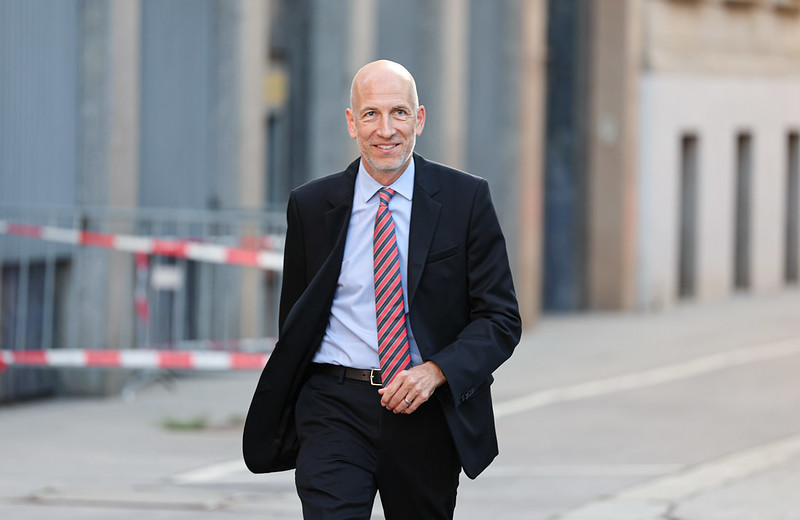ECB’s Kocher Sees Limited Economic Fallout From US Tariffs
6 November 2025

By David Barwick – FRANKFURT (Econostream) – ECB Governing Council member Martin Kocher said in remarks published Thursday that the euro area economy had weathered the impact of US tariffs better than anticipated and that recent data pointed to some stabilization.
Kocher, who is governor of the Austrian National Bank, told Politico that growth and inflation had not weakened as much as expected earlier in the year, suggesting the damage from the trade conflict was less pronounced than many had feared.
He warned nonetheless that the euro area could still face headwinds from ongoing trade and geopolitical tensions, calling the current situation “the highest level of tariffs since the 1930s.”
Kocher said the ECB would continue to evaluate how the tariff dispute affected its outlook for activity and prices. Further policy easing, he said, would depend on evidence that risks were materializing and significantly lowering projected GDP growth or creating disinflationary pressure.
He observed that the ultimate effect of the trade conflict remained uncertain. Tariff-related shifts in supply chains could dampen prices if production moved toward Europe, while geopolitical frictions might instead restrict supply and lift costs, he said.
Developments at last week’s APEC summit between the United States and China could again alter the outlook, he noted, arguing that rate decisions should not rest mainly on risk scenarios.
Looking ahead to the December Governing Council meeting, Kocher said the ECB’s new staff forecasts would include 2028 for the first time but that the distant horizon made such projections largely indicative. “You always have to take projections with a grain of salt,” he said. “And the further away the projection horizon, the larger the grain of salt.”
On climate policy, Kocher said the ECB’s approach remained consistent with the EU’s climate objectives. He supported considering climate risks in the Bank’s projections and favored eventually adding a climate criterion to the collateral framework, provided it did not conflict with the price stability mandate.
“As long as it does not create a trade-off with our inflation target, I am perfectly fine with it,” he said.
